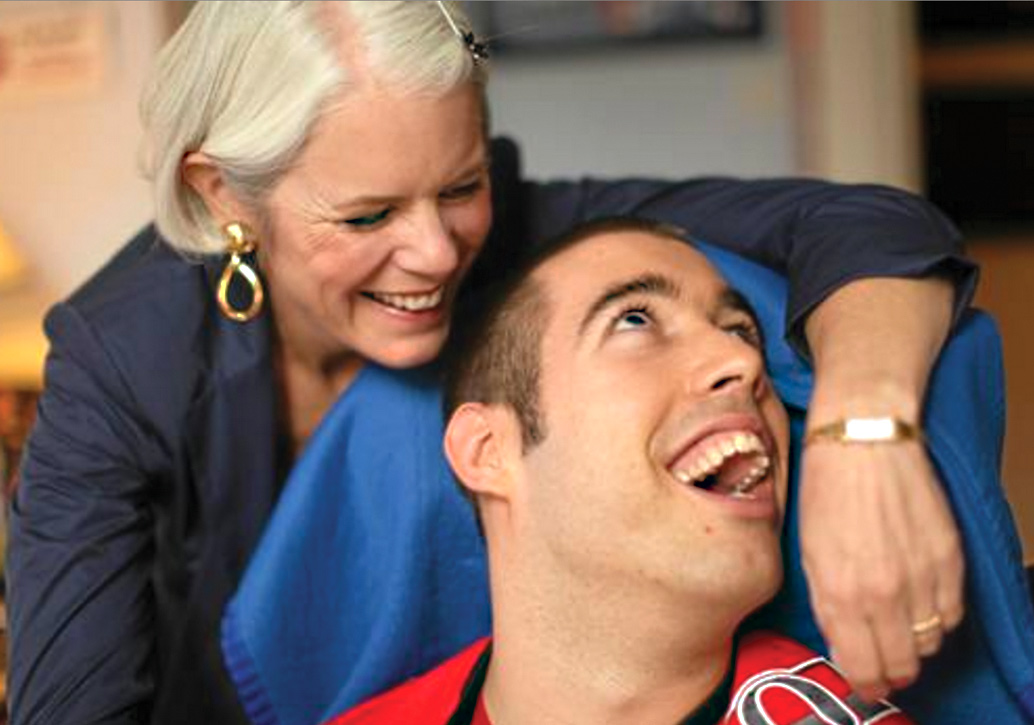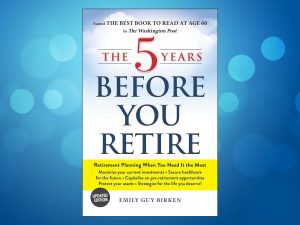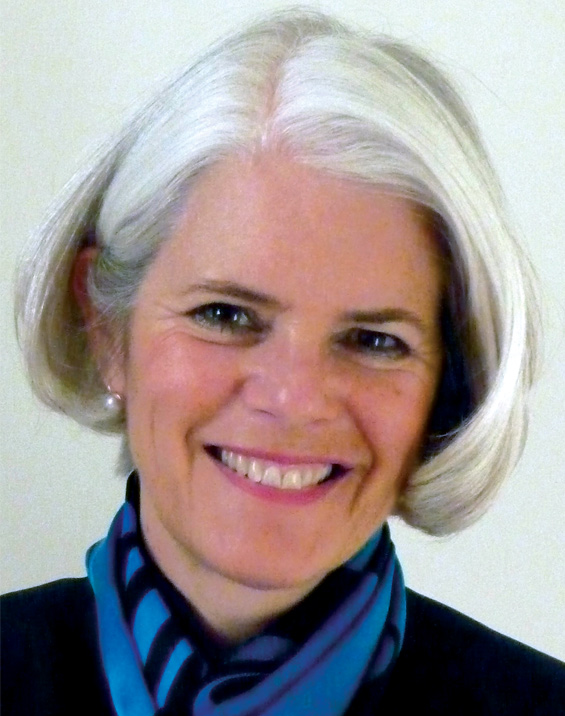 By Donna Thomson
By Donna Thomson
Recently, I had a conversation with our family’s doctor. “Why do you take all the complex patients?” I asked. “You’re amazing—I’ve heard you advocating on the phone for frail seniors who have no one else. And when other GPs turned our family down because our son Nick is too complex, you said ‘yes.’ Why did you say yes when other doctors said no?” He shrugged. “I’m ok with uncertainty, I guess.” I could have hugged him.
Am I okay?
I’ve been thinking a lot about this short conversation and what it actually meant to me. I’m grateful for our wonderful family physician, and I wonder if we shouldn’t be offering a course in embracing uncertainty to all prospective family doctors—and maybe to family caregivers, too. I’m thinking about my own feelings about uncertainty. Am I okay with it?
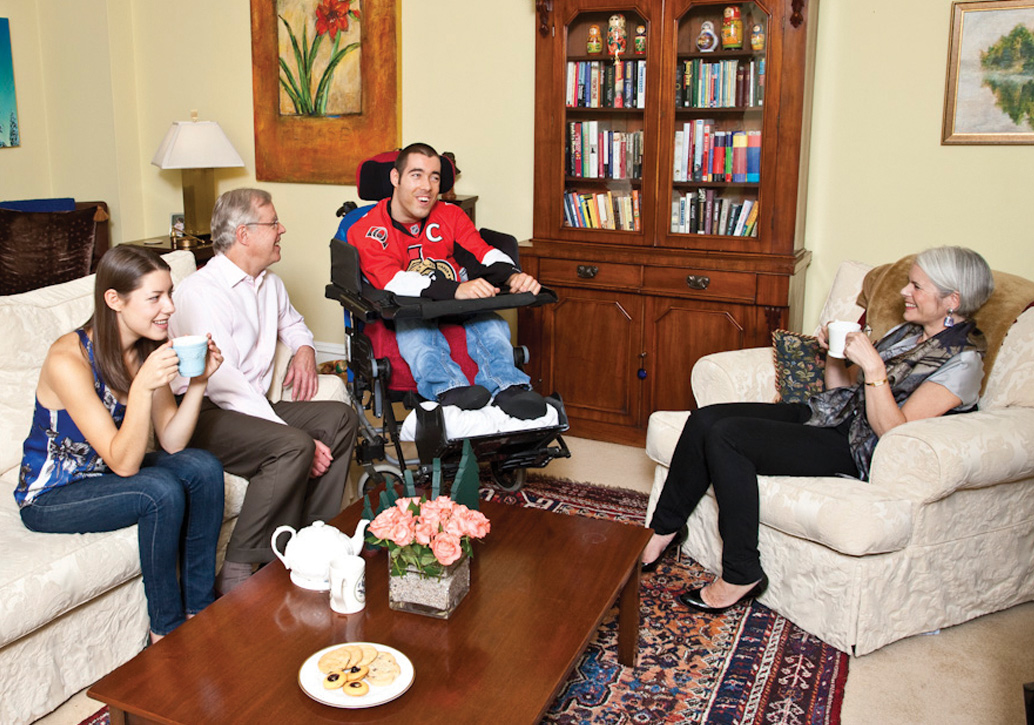 To be honest, I hate it. I want to be in the driver’s seat—and if others are driving, I want them to handle the wheel my way. And that’s the crux. So I can understand those doctors who turned us down, I really can (even though I find it infuriating). It’s hard juggling with uncertainty. In caregiving, we need to be in control. Yet so much of caregiving is beyond our control. We believe that we should be living our own life and the life of our loved one, too. Any other approach feels dangerous and even possibly life-threatening. Hasn’t every caregiver worried, “What will happen if I look away…if I become distracted or leave the house?”
To be honest, I hate it. I want to be in the driver’s seat—and if others are driving, I want them to handle the wheel my way. And that’s the crux. So I can understand those doctors who turned us down, I really can (even though I find it infuriating). It’s hard juggling with uncertainty. In caregiving, we need to be in control. Yet so much of caregiving is beyond our control. We believe that we should be living our own life and the life of our loved one, too. Any other approach feels dangerous and even possibly life-threatening. Hasn’t every caregiver worried, “What will happen if I look away…if I become distracted or leave the house?”
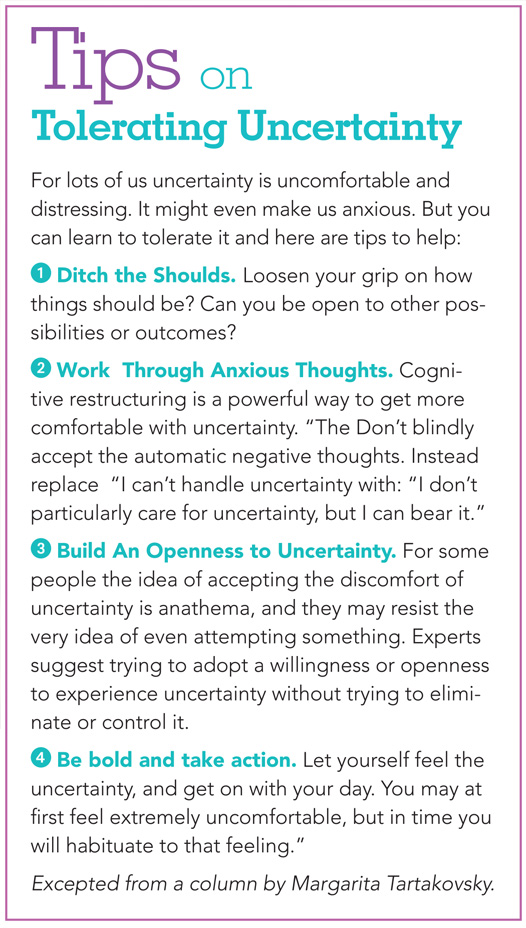 I’m not referring to urgent situations where taking total control is required—or when we must relinquish all of our control to an emergency healthcare team. I’m talking about long-term care. The place where care is given and received continually over months and years. I’m talking about the voice in the caregiver’s head that says, “This is the way the care must be done.” When others offer to help, but the way they perform care and homemaking duties is different, it can feel unsafe, unhelpful and, for some, even intolerable.
I’m not referring to urgent situations where taking total control is required—or when we must relinquish all of our control to an emergency healthcare team. I’m talking about long-term care. The place where care is given and received continually over months and years. I’m talking about the voice in the caregiver’s head that says, “This is the way the care must be done.” When others offer to help, but the way they perform care and homemaking duties is different, it can feel unsafe, unhelpful and, for some, even intolerable.
I am guilty. I admit it—I have suffered the anxiety of the perfectionist in the midst of my son’s highly volatile healthcare needs. I have tried my best to morph the uncontrollable into something that is within my ballpark and under my strict command. However, this tactic has never worked and, over time, has made me feel unhappy, resentful and worn out.
Living in the moment
I have learned the hard way that letting go of control, easing up on the gas pedal and making peace with uncertainty are the keys to feeling relaxed and even happy, most of the time. There are various names for this trick of the mind; some call it “giving it to God,” while others might say they “live only in the moment.” Putting out the welcome mat for uncertainty doesn’t mean giving up on excellence in caregiving, or on routines or the little things we like to do. But it does mean realizing that great caregiving doesn’t necessarily lead to excellent outcomes in your loved one’s health, and understanding that we cannot solve every problem that comes along or reduce every risk we’re faced with. Accepting that random and unknown elements will occur is key for keeping a well-balanced life.
I’ve learned
So, I still make meticulous plans and I still watch my loved ones very, very carefully. But I’ve learned that whatever course of action I think is right might turn out to be wrong—and that despite my finest efforts, I cannot know the future. I do know that I’m doing my best and that my best is good enough. Now, my shoulders are down and I can smile, confident in the fact that I am imperfect and that certain things are beyond my control. C’est la vie!
Donna Thomson is a serial caregiver and author of The Four Walls of Freedom: Lessons I’ve Learned From a Life of Caregiving. Donna blogs regularly at her site, The Caregivers’ Living Room and she consults to hospitals and governments on issues related to patients and their families.

